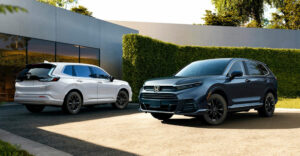
Google’s so-called driverless car has sparked speculation that it will bring about drastic changes in our cities.
Some prognosticators foresee new cities with narrower streets, fewer parking spaces, and hidden sensors instead of traffic lights, while others fear there might be a new flight to the suburbs like the 1960s exodus. It’s a battle between scenarios from The Jetsons and Mad Max.
However, that’s likely oversimplifying the issue.
“For the foreseeable future, it will be necessary to have a driver in the driver’s seat,” Roger Lanctot, an associate director at Strategy Analytics, told TechNewsWorld. “Google’s car is a self-driving car … driverless cars will only arrive if and when all cars are connected to one another and the infrastructure.”
That may well be more than 20 years away, because “there are too many questions marks involved — questions around liability, insurance, regulatory models,” suggested Praveen Chandrasekar, a research manager at Frost & Sullivan.
Further, Google and the auto industry are pulling in different directions. While Google is promoting the concept of an autonomous vehicle, the auto industry “is looking to give you automatic features like collision avoidance with emergency features,” Chandrasekar pointed out, “not autonomous driving.”
The Joy of Not Having to Park
In one future scenario, when driverless cars become common, cities won’t need to reserve as much as 30 percent of their area for parking spaces, so housing prices will fall. People won’t have to drive in circles searching for parking spots, which accounts for about 1 billion miles of driving every year. The air will be cleaner. Traffic lights won’t exist — sensors will direct the flow of traffic.
“I can’t accept the concept of not having traffic lights, because that means everything will need a brain of its own, and that will require collecting and processing huge amounts of data,” Frost & Sullivan’s Chandrasekar told TechNewsWorld.
Replacing existing traffic lights with sensors would be very costly, and “who has the money to do that?” he wondered.
On the other hand, there’s speculation that driverless cars would mean people could live farther from their offices, and the car might become an extension of the home, with people working out of it or sleeping in the back. Cities might empty out, becoming crumbling, lawless havens for the dregs of society.
The Need for Autonomous Vehicles
There is need for a driverless car, concludes a joint study by KPMG and the Center for Automotive Research.
The total cost of vehicle ownership is high, considering the vehicle is driven for perhaps two hours a day; building and maintaining our roads costs about US$8-12 million a mile while resurfacing them comes in at about $1.25 million a mile, which is high for cash-strapped governments; driving around looking for parking in cities consumes about 40 percent of a car’s total gas consumption; and car accidents take a high toll on human lives.
Further, we are running out of space in our cities, with the number of cars increasing, and parking lots and garages taking up more than one-third of the land area in some cities.
“Self-driving cars are being designed to run on the roads we have now, and it is likely densely populated cities will eventually ban cars without this technology in order to avoid gridlock,” Rob Enderle, principal analyst at the Enderle Group, told TechNewsWorld.
Several technical problems have yet to be resolved, but when they are, it’s likely that autonomous vehicles will be used as some form of public transportation instead of being privately owned, the KPMG study suggests.
“You’ll be able to reserve a ride off the Internet, and it will pick you up and drop you off at your locations,” Enderle said, “so why own a car?”






















































"… driverless cars will only arrive if and when all cars are connected to one another and the infrastructure."
This seems like a completely unsupported assertion. Why can’t autonomous cars use their own sensors and make their own decisions without being "connected" to other cars or infrastructure? I see no reason.
http://www.templetons.com/brad/robocars/accident.html
THX Brad.
I’ve been looking trough your blog.
Looks great and gave me some answers.
You ARE the first person worldwide who actually has engaged in this subject.
"That may well be more than 20 years away, because "there are too many questions marks involved — questions around liability, insurance, regulatory models,"
Another assertion that blows my mind. Imagine a vehicle able to drive completely by itself safely, available now, thus being able so save 30,000 lives per year in the US, a 9/11 every month. We’re supposed to wait 20 years for regulators to get their act together?
I AM trying to get a few legal questions answered since a few years from various manf. and researchers.
Don’t we have to change the legislation completely ?
(human) pilot error.. machines don’t make mistakes !
In an accident , a serious one , with multiple mortality etc…
Something like the train accident in Canada lately.
Who going to pay up ? The insurance or the manufacturer… infallible AI systems.
Or in a simple accident , who pays the damage ?
The AI or me ?
I don’t get any answer anywhere.
Must be something when it’s all to late :/
What do you do if :
1 Someone has an accident and needs to be taken to the doctor urgently and there is a waiting list for a car?
2 There is a power cut either when you need to go or somewhere on the way?
3 the car breaks down? . . .
The list of problems is endless. You could be better off taking the train.